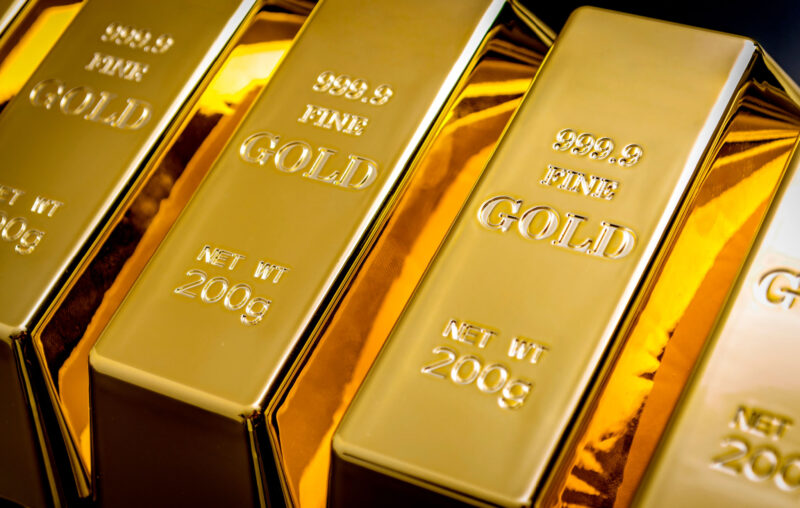
From August 22 through 24th, a prolonged union of over 40 countries which has actually ended up being called BRICS+ will satisfy in Johannesburg, South Africa. Amongst the most likely subjects of conversation is the expediency of establishing a jointly-owned worldwide banks. It would be moneyed by gold deposits, concern a currency, and extend loans connected to the area worth of gold. There are significant factors to question the workability of the growing consortium’s strategy. However to dismiss it summarily, whether as bad economics or rote anti-American propaganda, is to dismiss a minute 5 years in the making.
Throughout the 1990s and into the early dawn of the 21st century, nationwide federal governments towered above a world they credited themselves with producing. A Federal Reserve-engineered ‘soft landing’ in the mid-1990s upheld the understanding of financial policy as a perfectable science. The Third Method– not free enterprises, however an obstructed, extremely managed blended economy– had actually outlived and probably beat Communism. Technological development was rising beyond anybody’s wildest expectations. Area was at the leading edge of science once again, with the launch of the Hubble Area Telescope and building and construction beginning on the International Spaceport Station. Protease inhibitors, bioengineered foods, and the very first hybrid lorries got here.
United States Dollar Index (DXY), Fall of USSR– present
( Source: Bloomberg Financing, LP)
At that time political figures all around the world, chosen and selected, surveyed a world built on paper currency and financialization. They considered it with excellent, in a lot of cases smug, fulfillment. And to name a few self-congratulatory procedures, they started offering their long-held gold reserves– by the heap. England, the Netherlands, Australia, Belgium, Canada, and even rare-earth element stalwart Switzerland liquidated physical stocks of gold. The United States did too, a bit later on. Some discussed those sales as a method for diversifying reserve bank holdings. Others declared that the earnings would benefit the bad or be utilized to pay for federal government financial obligation. A brand-new centuries was at hand, the towpath to which was paved not by soft yellow metal however by batteries of workstations equipped with Pentium III processors, quietly producing options to partial differential formulas.
Twenty-five years later on the bad are still bad, nationwide financial obligation is at record levels, and the rate of gold in United States dollars is 8 to 10 times the rate that federal governments and main lenders offered nearly 5,000 metric loads for. Multi-trillion dollar wars have actually been battled to undetermined ends: not lost, truly, however far from won. Orders of magnitudes normally just discovered in astronomy books, conjuring up trillions (and in Japan, quadrillions) routinely emerged in the descriptions of financial and financial policy procedures of industrialized countries. Then, on the heels of an extremely politicized action to a public health occasion, inflation returned from a 4 years layover. One dollar printed throughout the Y2K scare today purchases approximately 56 percent of what it did then.
Nonetheless, the United States dollar has actually stayed the unassailable and basically particular international reserve currency, functioning as a circulating medium, system of account, and settlement instrument for the lion’s share of everyday worldwide trading. In spite of policy bad moves and diversions, the Fed has actually probably carried out much better than the majority of the world’s other reserve banks: in the land of the blind, the one-eyed guy is king. However the weaponization of the United States dollar in 2022 has actually exposed greenback reliance as a vulnerability of existential percentages With the prohibiting of many Russian banks from the Swift (Society for Worldwide Interbank Financial Telecommunication) messaging system, and regardless of the dollar’s benefits for usage in international trade, a line was crossed.
In Spite Of petulant persistences to the contrary by the most widely known financial expert today (unfortunately), a wave of de-dollarization is quite underway. It would be fascinating to understand how Krugman, who belittled the description of ejecting a country from SWIFT as “weaponization,” would identify French Financing Minister Bruno Le Maier’s calling the relocation a “ monetary nuclear weapon“
None of this implies that the dollar is “doomed,” and definitely not imminently Neither is the United States dollar “dead.” However its usage as an approving instrument most likely represents the crossing of a rubicon where countries constantly utilizing the dollar require to have currency options all set. United States Treasury Secretary Janet Yellen, even while mentioning the established nature of the dollar in international trade, yielded that “diversif[cation]” in international forex reserves is underway previously this month.
The argument that couple of if any other countries have currencies (and/or economies underlying them) that satisfy the requirements of an international reserve currency is a sound one. Naturally, one need not always change the dollar. What matters is having a prepared methods of negotiating outdoors dollar-based systems and organizations in exigent situations: to preserve connection of trade, and to hedge versus the policy mistakes of main lenders. What is the most valuable, least manipulable methods of moving far from the dollar (and perhaps back to it, as soon as stress have eased off) with the most affordable changing expenses? Gold.
Gold in USD, Fall of USSR– present
( Source: Bloomberg Financing, LP)
Saudi Arabia, not a specific fan of the present Governmental administration, has actually shown that it will invest billions of dollars into its broadening gold sector over the rest of this years. India just recently introduced an worldwide gold bullion exchange The imposition of ( nearly) extraordinary non-pharmaceutical interventions in early 2020 saw the rate of gold increase to tape-record highs. At the end of in 2015, reserve banks were purchasing gold at the fastest rate given that 1967 Since Might, 70 percent of reserve banks showed thinking that gold reserves would increase over the next year. Experimentation with utilizing gold along with dollars, and as cash, consisting of in some ingenious, familiar formats here in the United States, has actually been growing in simply the last couple of years.
Particular information on the suggested currency union have actually not yet been launched. They might not yet exist outside the minds of their promoters. Suffice to state that drawing ratings of countries together from various continents and cultures, with various histories and incredibly varied resource endowments will be a heavy lift, organizationally speaking. Smaller sized members are most likely to discover their interests marginalized, with the resulting vibrant closer to what’s seen in the United Nations than, state, OPEC. And few of the proposed members have confidence-inspiring performance history where home rights are worried.
The type and function of the BRICS+ banks, if any is undoubtedly upcoming, is of secondary value. What matters is that the sluggish creep of de-dollarization is, on its other side, an inexorable push towards the re-monetization of gold. And whether that implies sound cash through development or pushing international reserve banks to reform their practices, those results are welcome to state the least.
